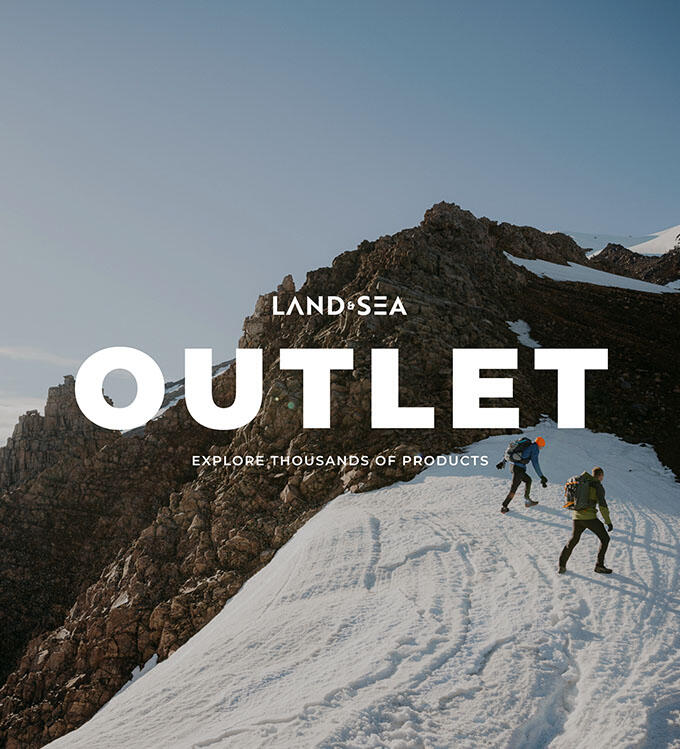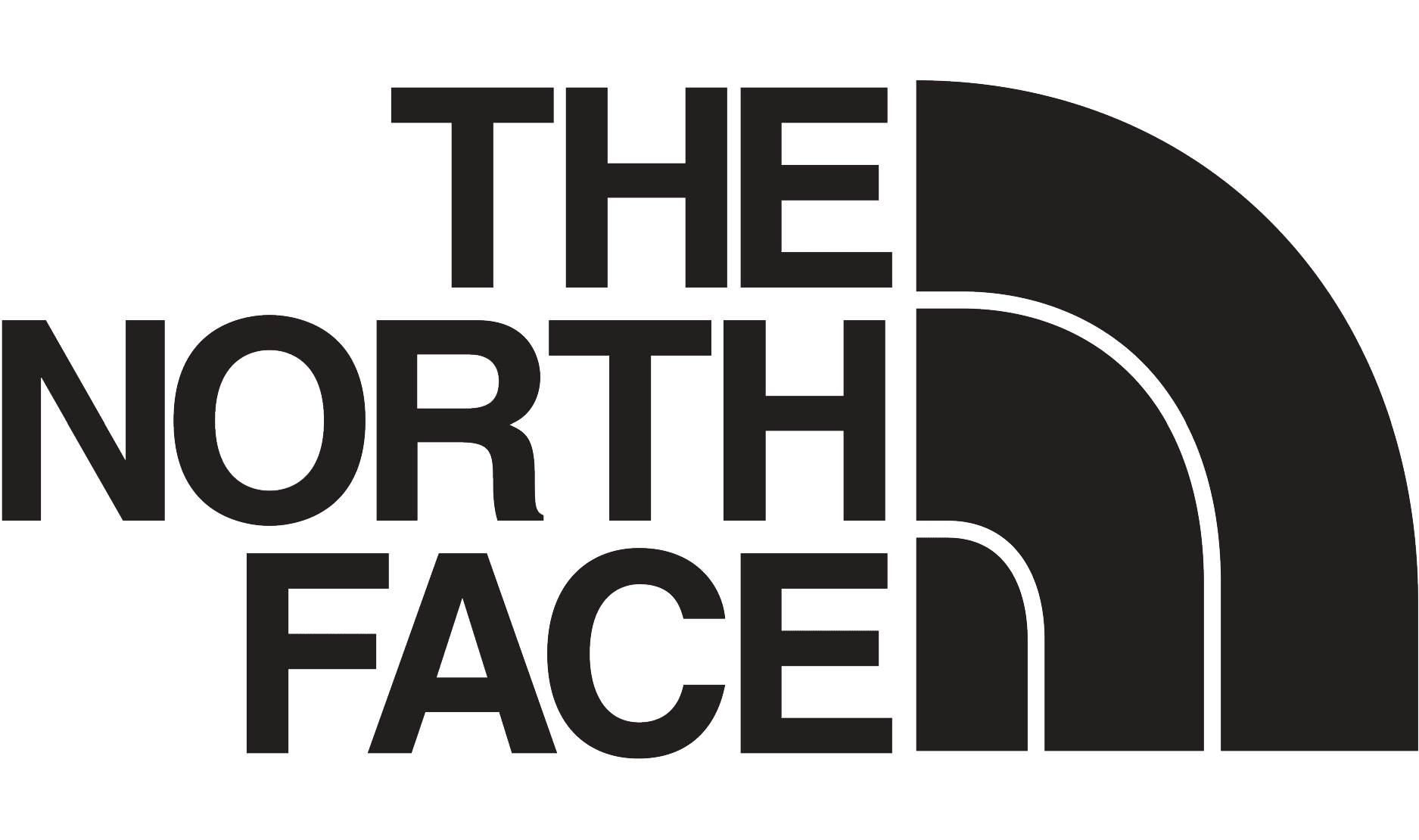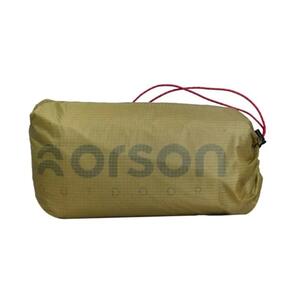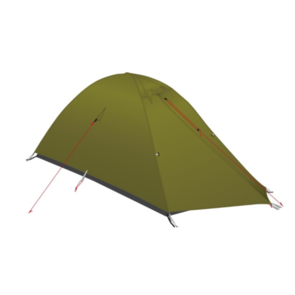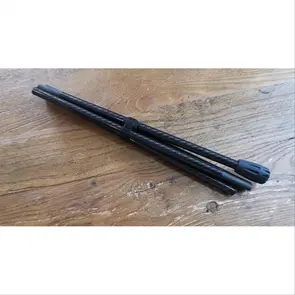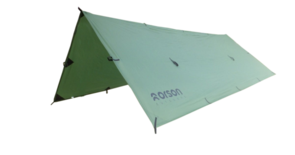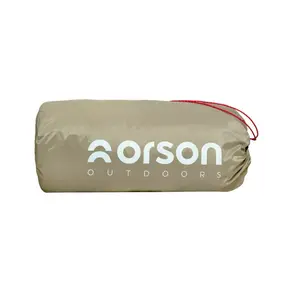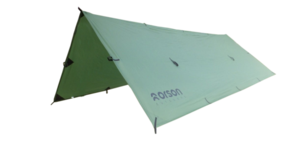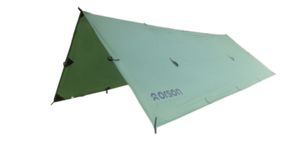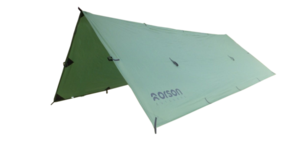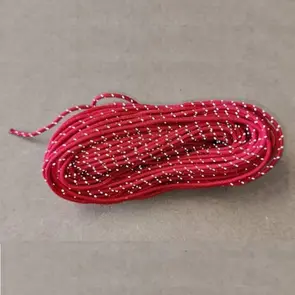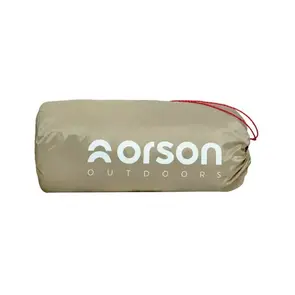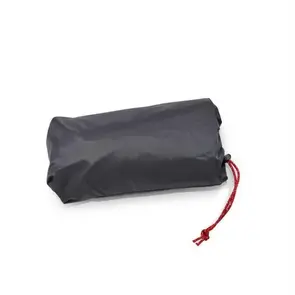Product Description
THE ULTIMATE TENT FOR A GROUP OF HIKERS
Discover the ultimate camping companion with the Orson Nomad 3-4 Person Hiking Tent — your ticket to versatile, year-round adventures. This freestanding tent combines durability, ample space, and easy portability, making it perfect for a variety of outdoor experiences.
Orson Nomad 3 'All Weather' Lightweight 3-4 Person Hiking Tent Features
- Equipped with a waterproof PU4000mm fly and a heavy-duty 150D PU10,000mm floor, the Nomad is designed for year-round use, providing a reliable shelter in various weather conditions.
- Accommodating 3-4 people, the tent's inner dimensions measure 220cm x 205cm x 115cm, ensuring a comfortable and roomy camping experience.
- The fabric/mesh inner tent walls contribute to better insulation, adapting to changing temperatures and providing a cozy atmosphere.
- Enjoy easy access through the front entry, and utilize the vestibule for convenient storage of gear, keeping the interior tidy and organized.
- Two ventilation vents ensure proper airflow, enhancing comfort inside the tent.
- Stay organized with the included gear loft and storage pockets, providing designated spaces for your essentials.
- Weighing just 3.3kg, the Nomad is easy to carry, and the compression carry bag simplifies repacking, making it an excellent choice for those on the go.
Orson Nomad 3 'All Weather' Lightweight 3-4 Person Hiking Tent Specifications
- Capacity: 3-4 people
- Colours: Orange or Olive Green
- Fly Measurements: 225cm (+ 90cm vestibule) x 210cm x 120cm
- Inner Measurements: 220cm x 205cm x 115cm
- Outer Fly: 68D 210T Ripstop Polyester, PU 4000mm, taped seams
- Inner: 68D 185T BR, WR Polyester and fine mesh
- Floor: 150D Oxford Polyester, PU 10,000mm, taped seams
- Poles: 8.5mm Aluminium 7001 T6 x 2
- Pegs: 17.5cm Aluminium stakes x 12
- Carry Bag: Compression carry bag
- Packed Size: Approx. 43cm x 16cm diameter
- Packed Weight: 3.3kg (everything included)
Videos
Facts
Q: How do I know what size hiking tent I need?
When choosing the size of your tent there are a few things you need to consider. Start with how many people will be sleeping in your tent. If weight & size are not major factors, then we recommend upsizing by 1. For example, if it’s you & one other then we would suggest a 3-person tent. If you are looking for the most compact solution, then stay true to the occupants within your tent.
Q: How heavy should a hiking tent be?
Ideally as light as possible however there are a few factors at play. As a general rule of thumb, the higher your budget the more compact your tent can be due to the use of higher-quality materials. Your weight will also be dependent on the size you choose. If you are travelling by foot or bike then our recommendation is to go as light & compact as you can afford.
Q: What makes a tent, a hiking tent?
Hiking tents are designed to be lightweight, durable & versatile for adventure purposes. Hiking tents generally vary between 1-person
& 4-person in size. Designed to provide maximum protection for the user with the ability to easily pack up & carry around with as little hassle as possible. Hiking tents are also designed to handle variable conditions from Wind & Snow to heat.
Q: What waterproof rating do I need in my hiking tent?
All hiking tents are rated with a ‘MM’ rating. This rating directly measures the water pressure the fabric can withstand. For example, a 2,000mm rating can endure 2,000mm (2 meters) of water baring down on the tent before it begins to leak. Hiking tents are generally rated between 800mm & 10,000mm – finding the right water rating is important when considering the conditions you intend to camp.
Q: Do I need a footprint for my hiking tent?
Footprints are highly recommended for most tents but most definitely for hiking tents. Footprints take up minimal extra room in your pack but add a vast array of benefits. Here are some of the key benefits. Reduction in condensation, extra warmth, greater durability, additional waterproofing & aiding set up by acting as a template.
Q: Do I need an all-season hiking tent for New Zealand conditions?
The most popular hiking tents in NZ tend to be 3-season or ‘all-season’ tents due to the variable conditions. 3 season tents are designed to deal with Summer, Autumn & Spring conditions. ‘All Season’ or 4 season tents ensure you are kept safe & dry during winter seasons. If you intend to camp during the cooler months it is our recommendation to look at an ‘all-season’ tent.
Q: How much do I need to spend when buying a hiking tent?
When choosing your ideal hiking tent, price is generally a factor to consider. As a general rule of thumb the more expensive your hiking tent the more lightweight & compact it will be without compromising its durability to the environment. For the majority, the amount of use your tent will get is a big factor in how much you spend. Our recommendation is to consider the conditions you intend to use your tent vs the packability & weight. For example, if you require an ‘all season’ hiking tent to fit into your hiking pack then be prepared to pay a little extra.
Q: What is the best shape of hiking tent?
Hiking tents come in many different shapes & styles. Much of this comes down to manufacturing design however the shape will also affect the packability of the tent itself. For example, more rounded, dome-like tents will generally have a larger pack down size & subsequently be slightly heavier. A streamlined design, often found in 1-person tents allows for manufacturers to keep weight & pack size to a minimum. Please keep in mind that the shape will directly affect the space inside the tent.
Q: Can a child sleep in a hiking tent?
The short answer is yes. We would suggest stepping up one size to allow for extra space. We would also suggest purchasing a footprint for your tent to make the sleeping conditions more comfortable for your child in the instance they are hiking with you.
Q: What tent is best for me if I get claustrophobic?
As above, our recommendation is generally to step up one size if & when possible. If you do happen to get claustrophobic, then this would be highly recommended. It may also be worth leaning towards a more dome-style tent for added internal space.

Expert Review
Our experts are currently reviewing this product & will be providing their review shortly.

